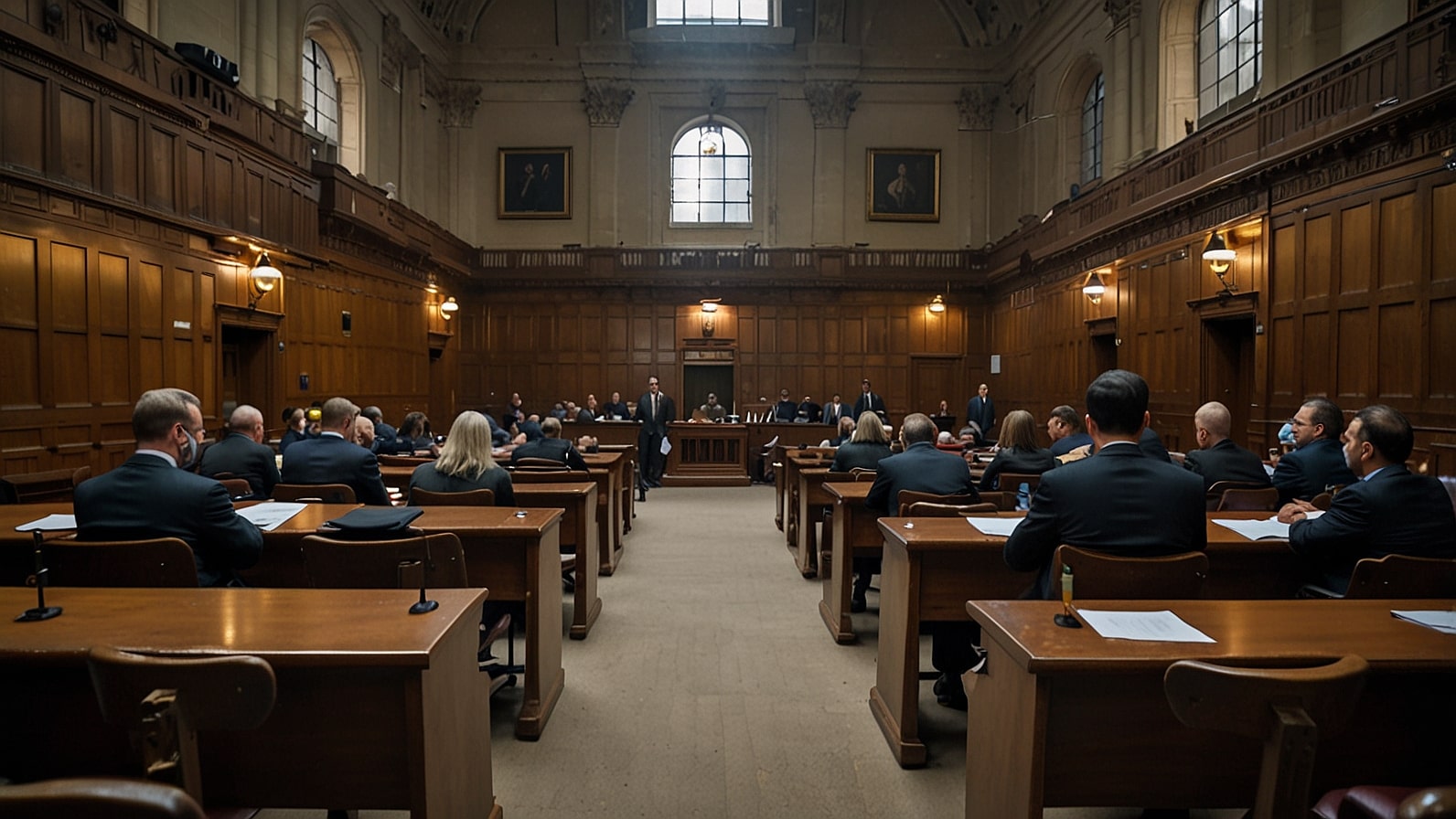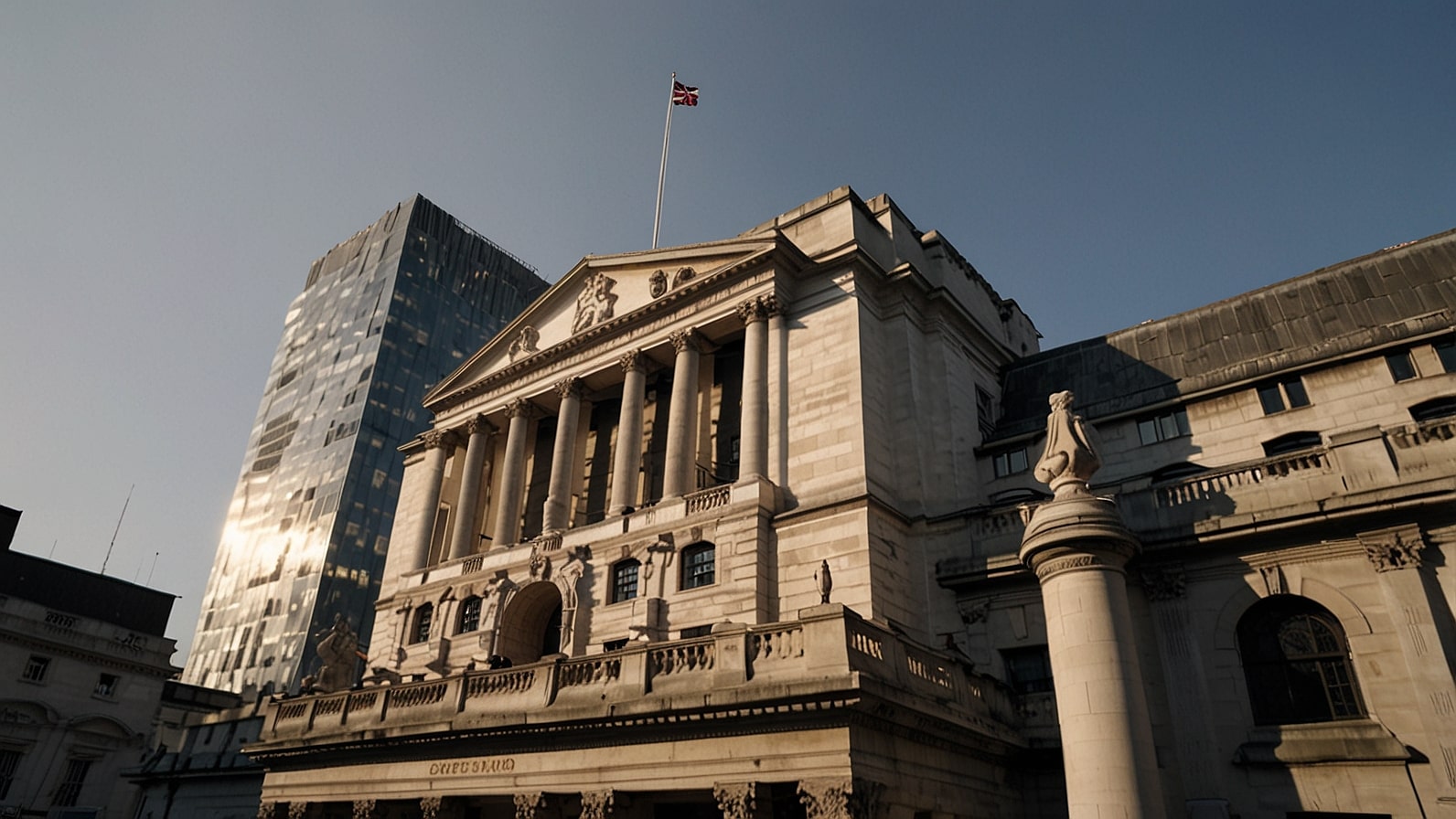British prosecutors revealed on September 15, 2025, that they are dropping charges against two men who were charged with spying on behalf of China in a stunning development. The ruling has caused considerable controversy on the capability of the UK to fight foreign intrusion. The case throws light on the current tension between London and Beijing as the issue of espionage is escalating.
It was announced in a London court hearing at the Old Bailey. According to prosecutor Tom Little, the evidential standard on the charges was no longer achieved. The review of evidence was not detailed further, leaving many unanswered questions.
Both of them were in their early 30s, and both Christopher Cash and Christopher Berry were charged with grave charges of breaching the Official Secrets Act. Between December 2021 and February 2023, they were indicted for having given sensitive information to a suspected Chinese intelligence agent. The men had never admitted any wrongdoing at all.
Background of the Espionage Allegations
The case began with arrests in March 2023. British intelligence believed that the duo was undermining national security by having secret conversations. There were also alleged contacts with a supposed Chinese operative, which led to an investigation. This investigation was included in a bigger attempt to discover the influence of Beijing in the UK.
Attention was especially paid to the role of cash in Parliament. He was able to have access to top-secret negotiations on foreign policy as a researcher. There was also an added suspicion surrounding Berry due to his connection to China in his academic capacity. The information disseminated was feared to damage the UK’s interests in international affairs.
The indictment was officially unsealed in April 2024, which predetermined a high-profile trial. Legal scholars expected to see the secrets of the Chinese strategies in the democracies of the West. Rather, the case was killed before any witness could be heard.
Prosecutors stressed that the ruling was a result of strenuous scrutiny. They promised the people that they would have turned every stone when it comes to determining the viability of prosecution. The abrupt termination, however, has raised speculation about inefficiency in intelligence collection.
Profiles of the Accused Individuals
Christopher Cash was a well-known policy figure in the UK, aged 30. He worked as a researcher for Conservative MP Alicia Kearns, who is the chair of the Foreign Affairs Select Committee. Cash also headed the China Research Group, which is a Beijing-based security risk think tank.
His work entailed briefing the lawmakers about threats of Chinese business practices. Ironically, the lawyer that Cash had, Henry Blaxland, stated that his client was a vocal critic of China, rather than being a collaborator. The arrest, according to Blaxlan, was an injustice in the first place.
Christopher Berry is a 33-year-old who was born in Oxfordshire and who has an academic background. He had taught and worked in different capacities since 2015 in China. This experience resulted in him being a possible recruitment target, as per the first allegations.
Berry was closely associated with Cash, and this was a cause of concern to investigators. The two men have been referred to as friends with mutual professional interests in Sino-UK relations. Their defence went as far as celebrating the dismissed charges as a way of proving their innocence.
Justifications of the Dropped Charges
The Crown Prosecution Service gave insufficient evidence as the main reason. Officials found they were not able to sustain the legal burden of proof after constant examination. This standard involves a realistic likelihood of conviction regarding the given facts.
There were no details on what was changed in the evidence that had been released. It is postulated that a new forensic examination or witness testimony could have compromised the initial case. The ruling prevents a protracted court case that would have spilt sensitive intelligence techniques.
Opponents ask themselves whether there were any political pressures. As UK elections are coming up, the government might have avoided a courtroom drama. The move, however, according to the prosecutors, upholds the principles of justice.
The legal teams of the men were relieved and demanded apologies. They intend to demand restitution of the experience, i.e. bail conditions, and damage to reputation. The resolution is a conclusion of a chapter, but it leads to civil claims.
Chinese and Government Responses
The home office in the UK expressed great dismay about the failure. One of the spokesmen reiterated London’s determination to address threats to her by rogue countries, especially those orchestrated by state actors such as China. They committed to increased funding for counterespionage missions.
The political leaders of the different parties urged the Intelligence protocols to be reviewed. The allegations were serious, and the Foreign Secretary David Lammy issued a warning on the international scope of Beijing. The event highlights the weaknesses in the security of the parliament.
The charges were dismissed by the Embassy of China in London as fake slander. Beijing had always denied the systematic spying in the West, calling it anti-China propaganda. They did not give an official response to the drop, but this could support their story.
The decision was celebrated by the human rights groups who backed it, citing the risk of false accusations in cases of national security. They support increased transparency in the way the evidence is managed in order to avoid miscarriages of justice.
Wider Background of UK-China Spy Wars
This case comes out in the face of growing tensions between the UK and China. Cases of Chinese hacking attacks on government networks have been on the rise in 2025. MI5 has issued threats of vigorous recruitment of academicians and politicians.
In January this year, there was a dispute over the proposed super embassy in London by China, which brought out security concerns. Being passed despite objections, the huge complex created issues of espionage because of its capacity to spy. The attackers associated with Beijing were accused of hacking into UK defence companies.
The Act of 2023 on National Security has authorised the authorities to prosecute spies more effectively. However, the rates of conviction are low, which is frustrating legislators. Such arrests as those of a Hong Kong activist in 2024 due to his reported connections to foreign agents show the extent of the crackdown.
According to the experts, the unified front strategy of China applies to manipulate the overseas elites in an indirect manner. Beijing is a soft-power web of Confucius Institutes to business deals. The Five Eyes alliance between the UK and the US enhances the intelligence sharing concerning these threats.
In Parliament, there is a raging debate between trade and security. With the economic relations with China maintained, post-Brexit Britain aims at diversification. The charges that have been dropped can embolden the critics who believe that stronger measures, such as imposing sanctions on the involved officials, should have been taken.
National Security and Diplomacy Implications
The aftermath might change the UK counterintelligence priorities. Agencies can allocate additional funds to digital forensics in order to frame airtight cases. This event reveals loopholes in the prosecution of sophisticated espionage, particularly in cases where sources are not informed.
Diplomatically, it gives China a propaganda victory which could smooth bilateral negotiations on trade. But there is still no trust building. Future meetings, such as the G20, will find out whether this will tame the rhetoric or charge up the accusations.
To the people involved, life is back under scrutiny. The cash will be returned to advocacy, and Berry might have to deal with educational backlash. Their tale acts as a lesson to watch out for the dangers of global relationships in a divided world.
Theory goes around in social media talks about fake news, the deepfakes, and geopolitical play. The fact-checkers have called for caution, insisting on taking verified reports rather than speculation.
Reflecting on the Future: Case Insights
With the dust having settled, the policymakers have to strike a balance between security and civil liberties. Raising alliances such as AUKUS will discourage future attacks. Training on the tactics of foreign influence is critical to the sectors that are vulnerable.
This incident makes us remember how dark modern espionage is. In a tightly knit world, it is important to be vigilant but not to make it into paranoia. The UK’s reaction will determine its resilience towards authoritarian challenges.
Finally, the terminated charges prove the integrity of the justice system. However, they also highlight the stakes involved in protecting against external threats to democracy. Its echo will be heard in the halls of power till September 15, 2025.



